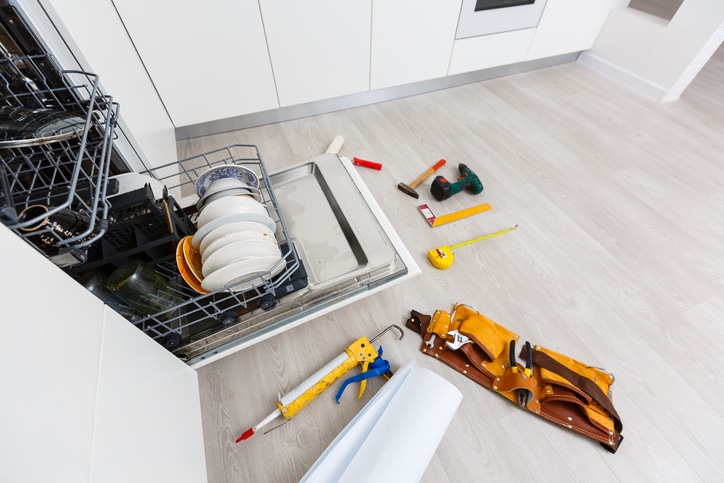How does a tankless water heater work for your Dallas home? Let us explain:
In a traditional heater system, there’s a large tank that holds and heats water. In order to give you hot water when you need it, the tank continually heats the water to maintain a constant temperature. The energy used to keep the water hot even when it’s not being used is called standby heat loss. Tankless systems avoid standby loss by heating incoming water only as you need it – this is why they are also sometimes referred to as on-demand water heaters. The elimination of the standby heat loss is what makes a tankless system more efficient.
The idea behind a tankless system is that it heats the water as you need it instead of continually heating water stored in a tank. Tankless water heaters heat water directly without the use of a storage tank. When a hot water tap is turned on, cold water travels through a pipe into the unit. Either a gas burner or an electric element heats the water. As a result, tankless water heaters deliver an endless supply of hot water. You don’t need to wait for a storage tank to fill up with enough hot water. However, a tankless water heater’s output does limit the flow rate.
Typically, tankless water heaters provide hot water at a rate of 8–10 gallons (30.2–37.9 liters) per minute. If you are a good candidate for a tankless system, you may save a nominal amount of money every year on your energy bills while also conserving natural gas. Tankless heaters also last about five to 10 years longer than a tank heater, take up much less space, and provide you with a theoretically unlimited amount of hot water.
Tankless water heaters are perfect for homes that have a water heater in the attic. If your 50 gallon, attic tank heater begins to leak, it could leave a mess throughout the home and cause serious water damage. If a tankless water heater begins to leak, it only holds 1 gallon of water within the unit itself. It has much less ability to cause damage.
If you have any questions about how a tankless water heater works, contact Total Plumbing today!



